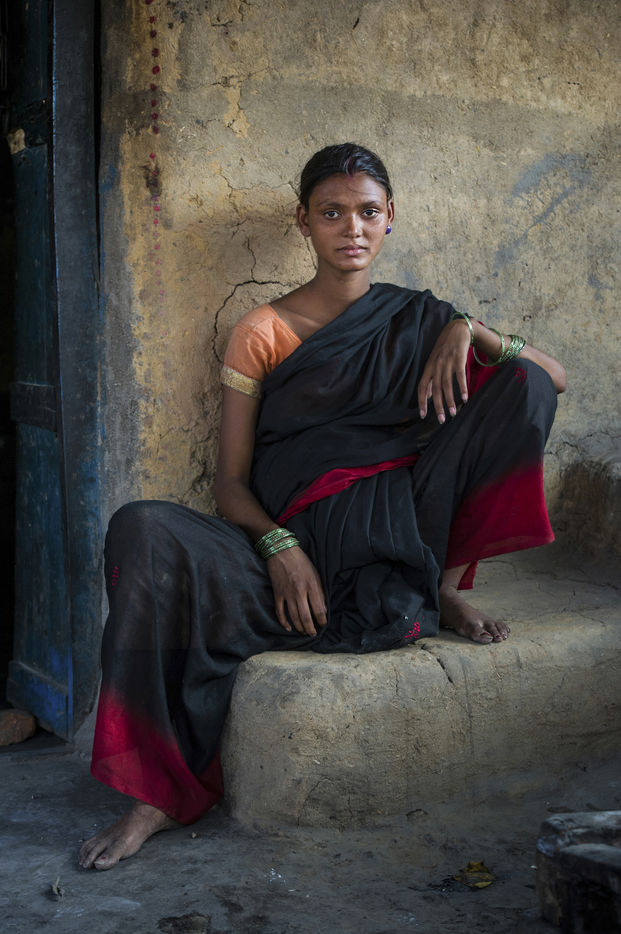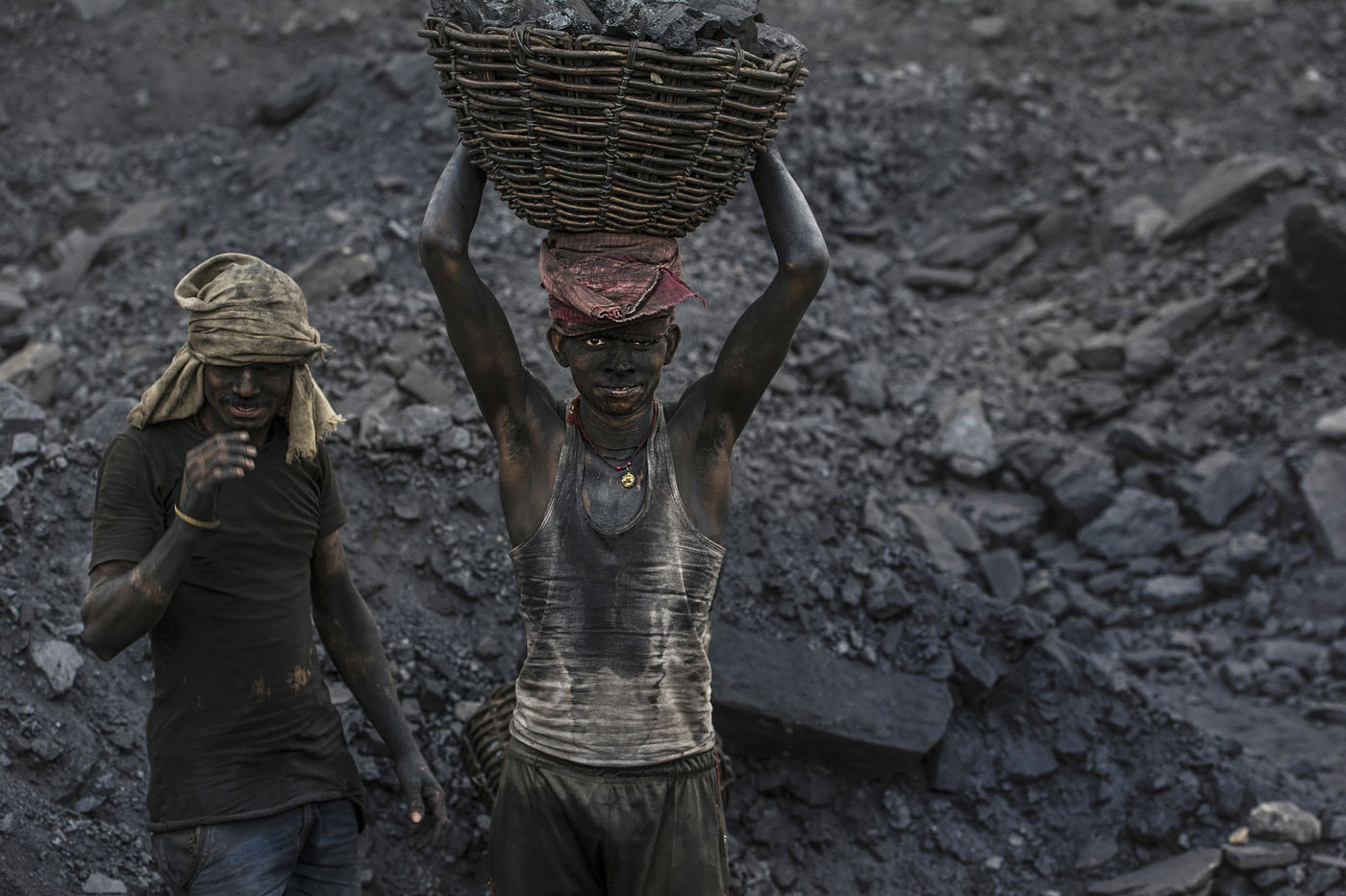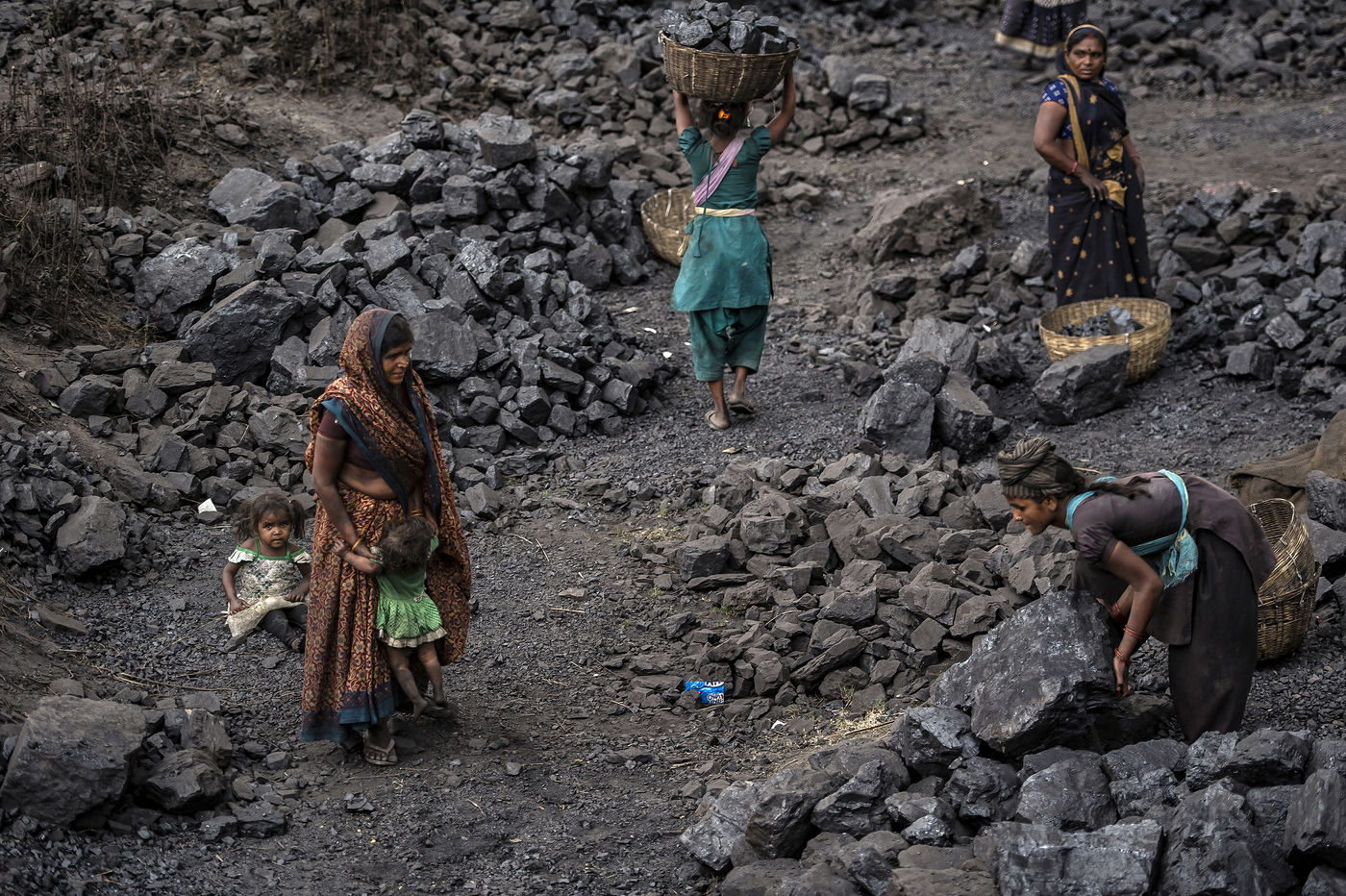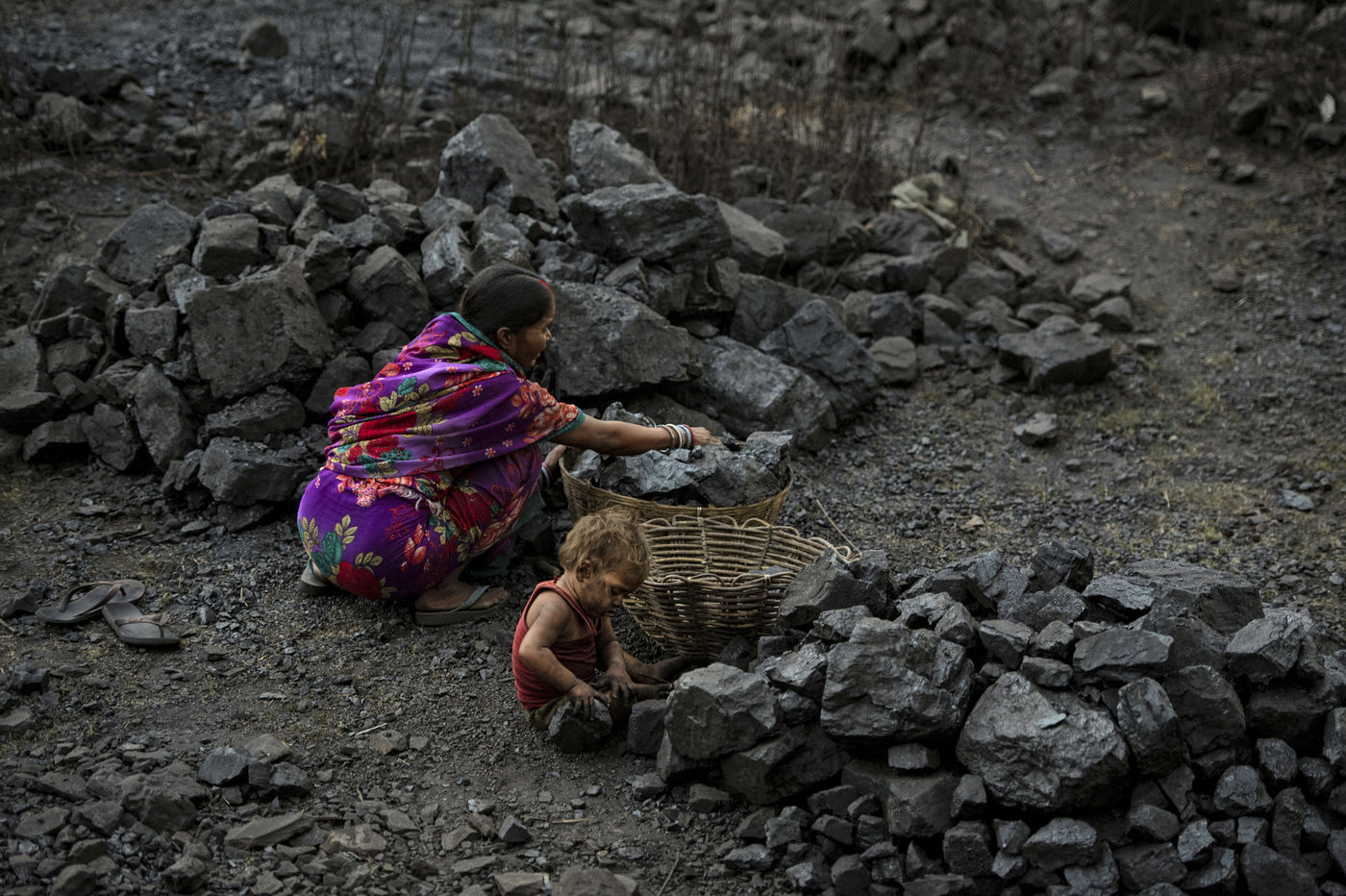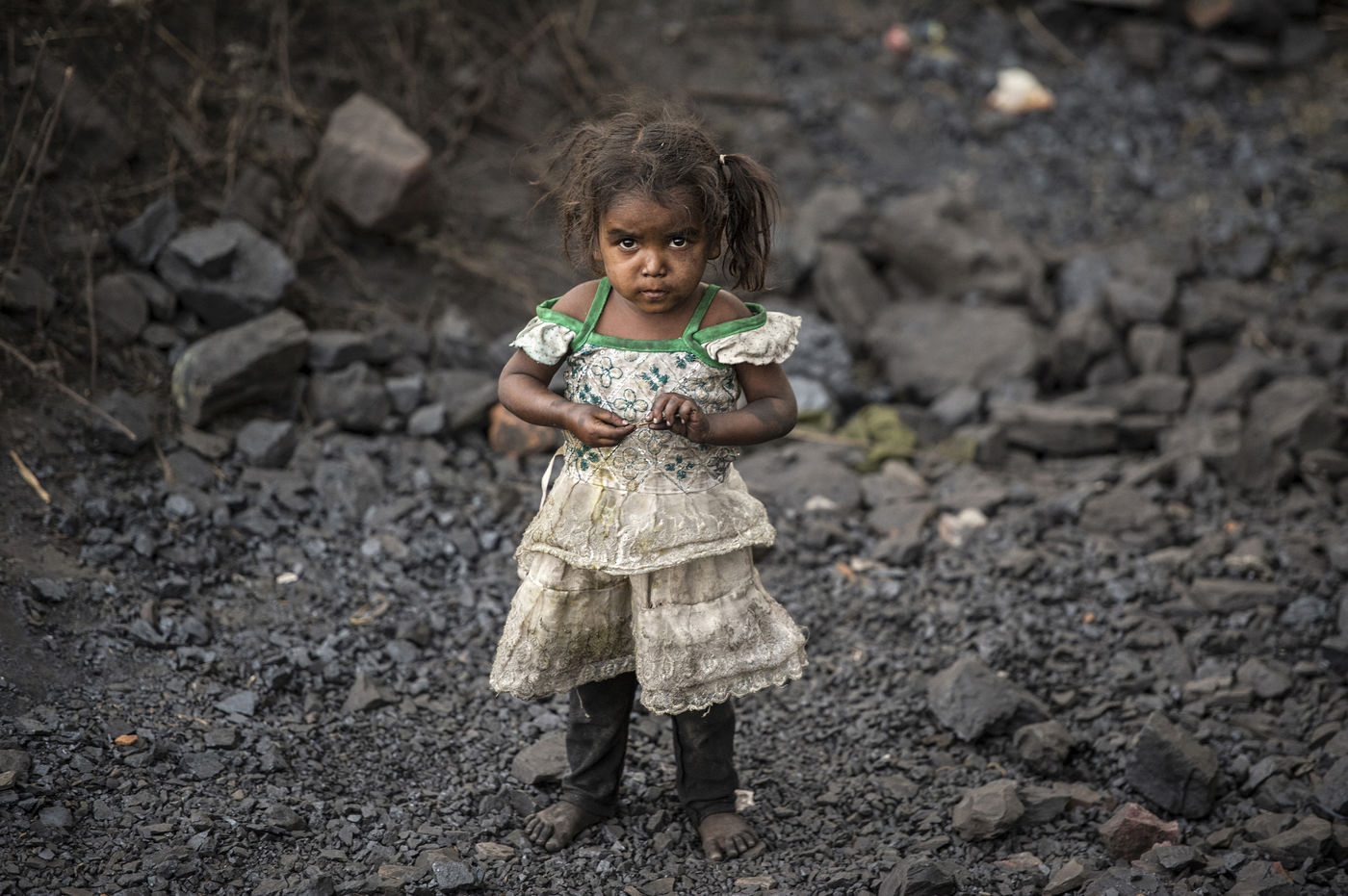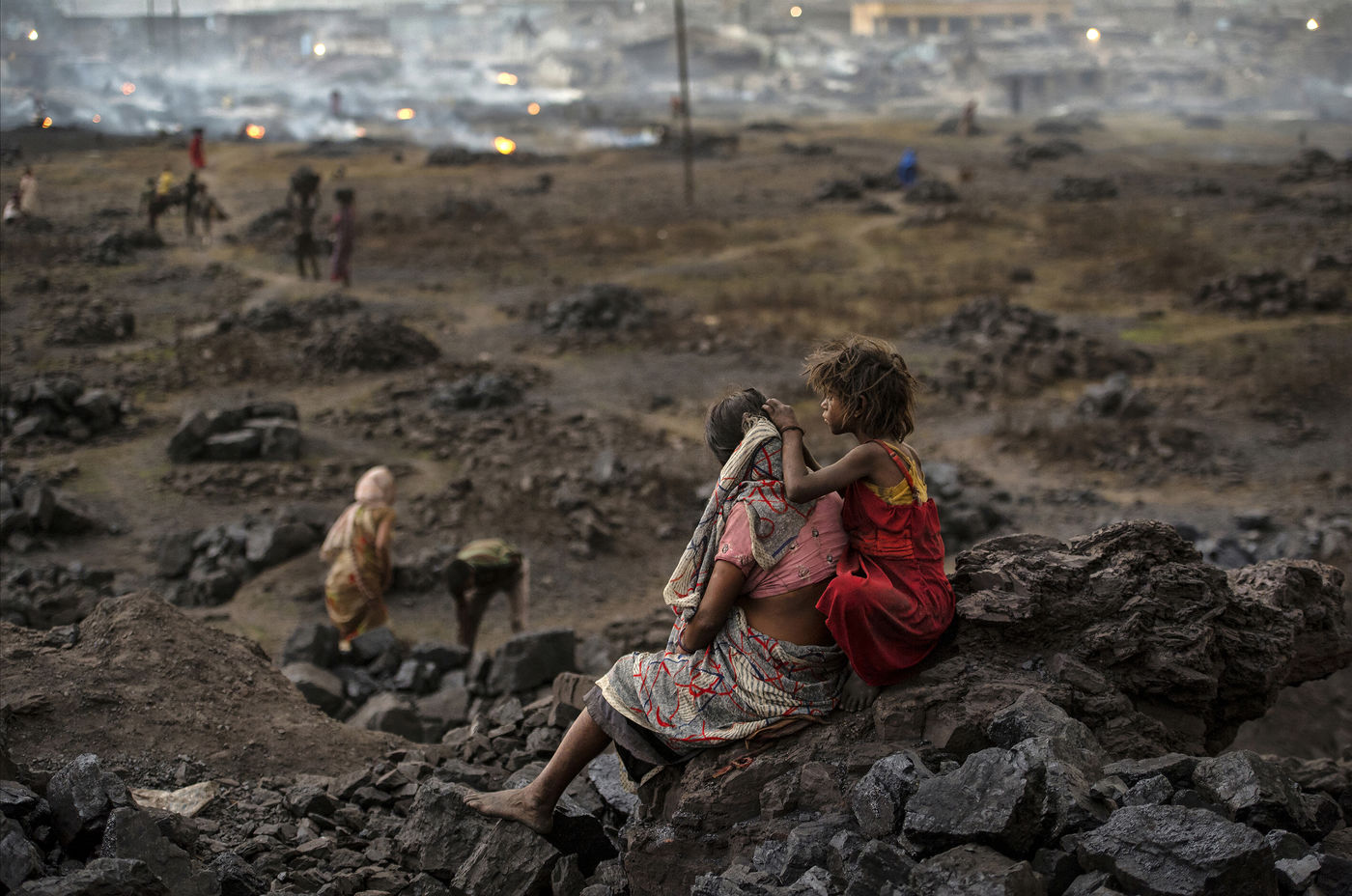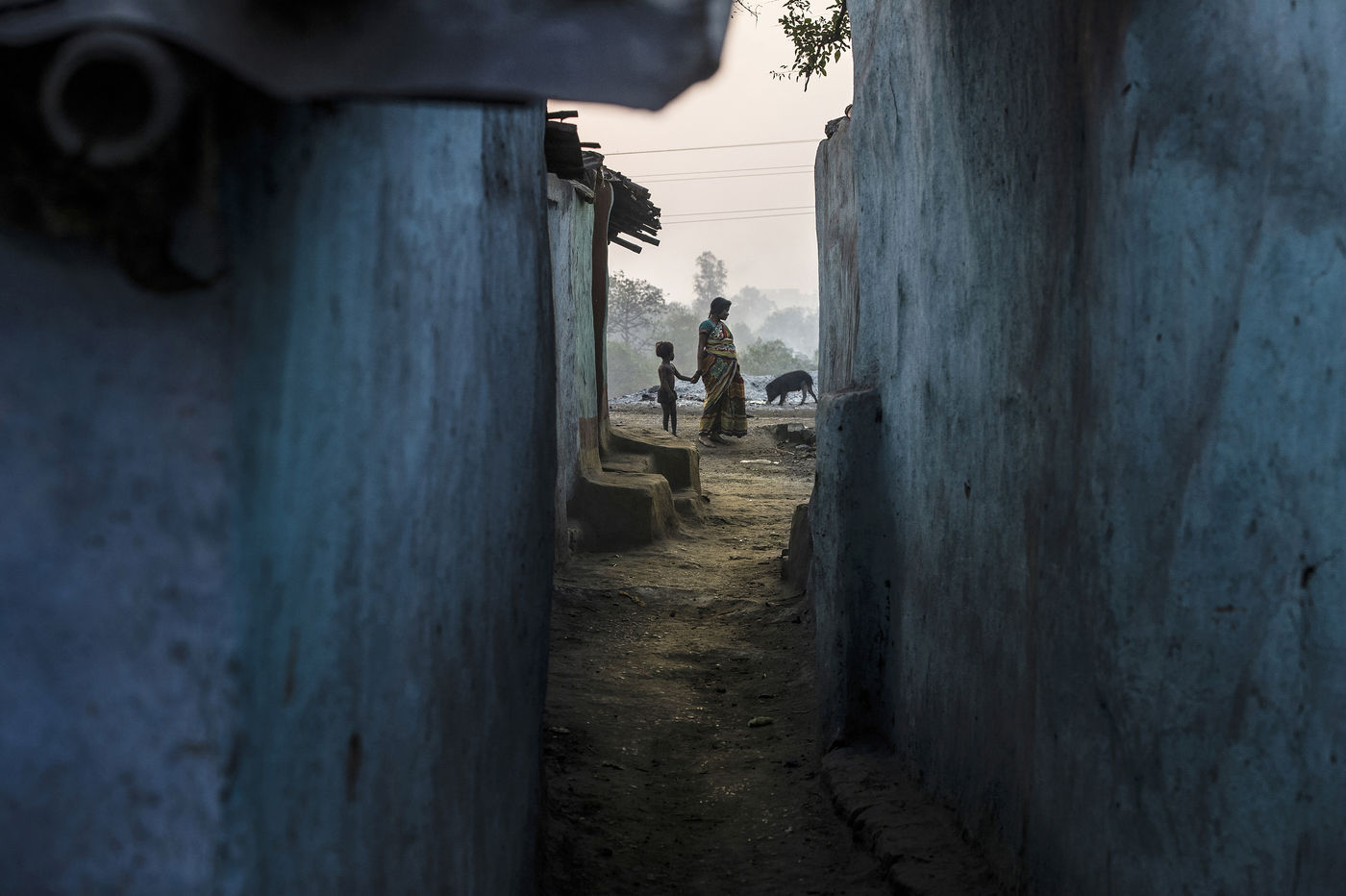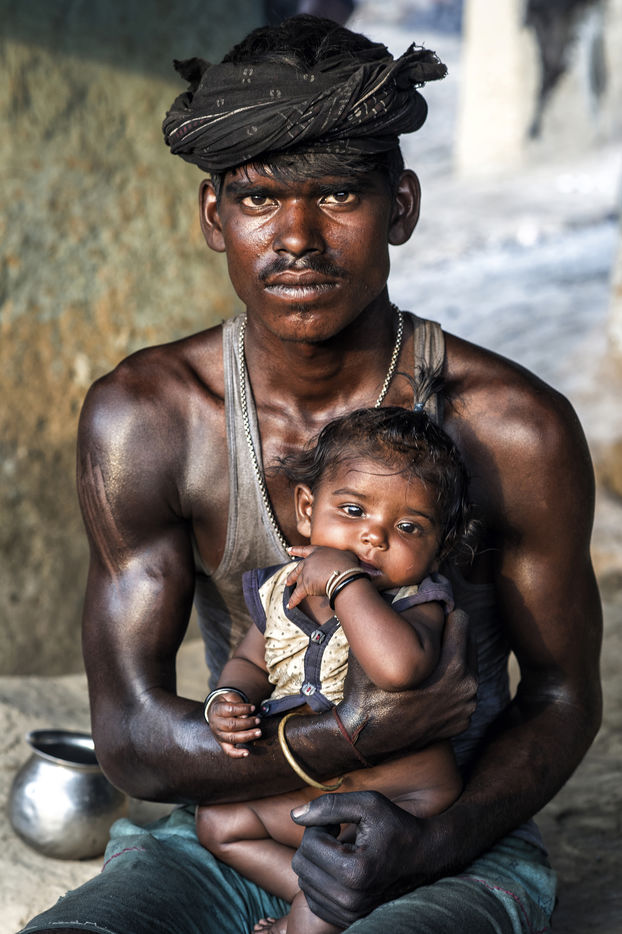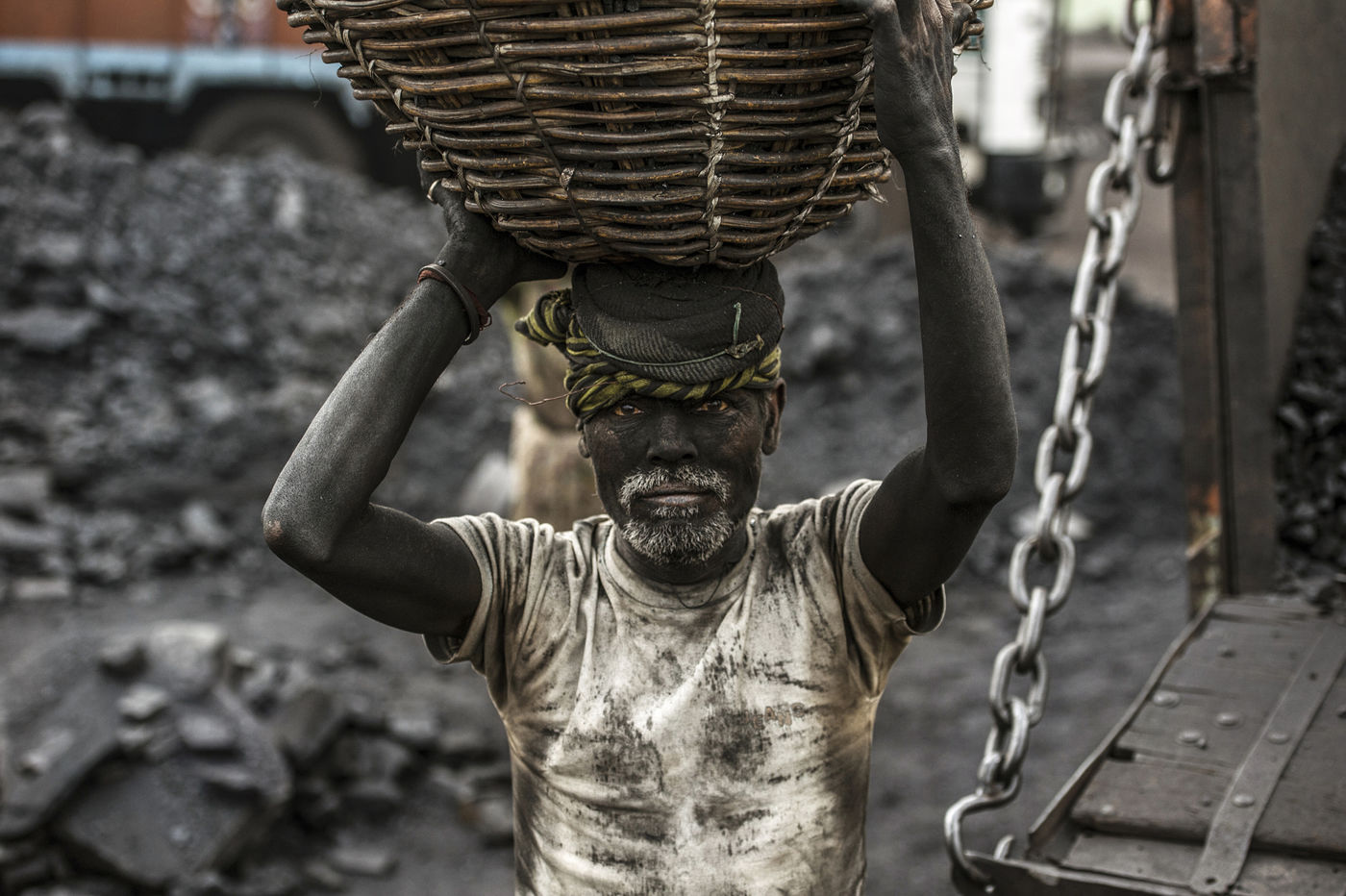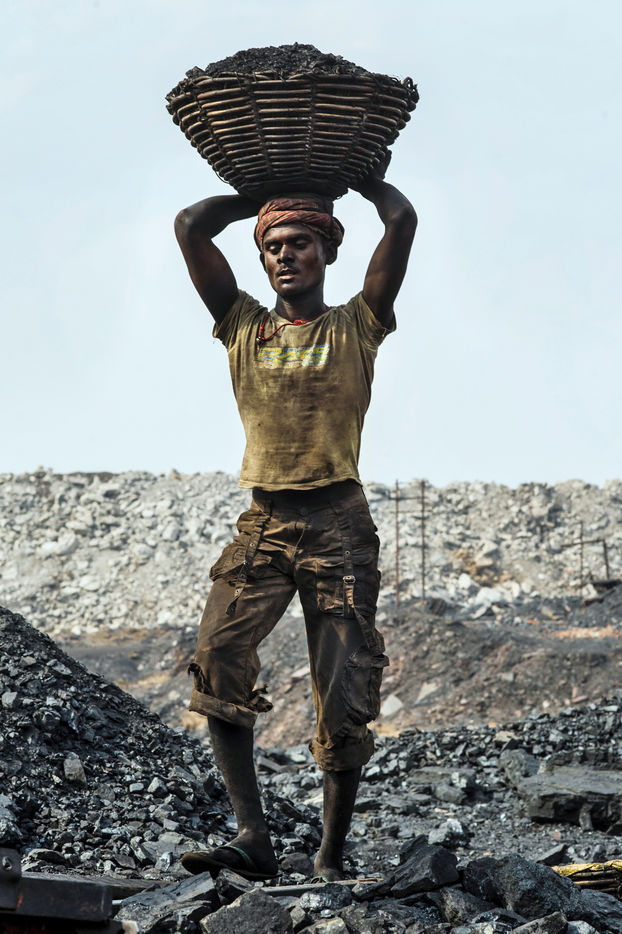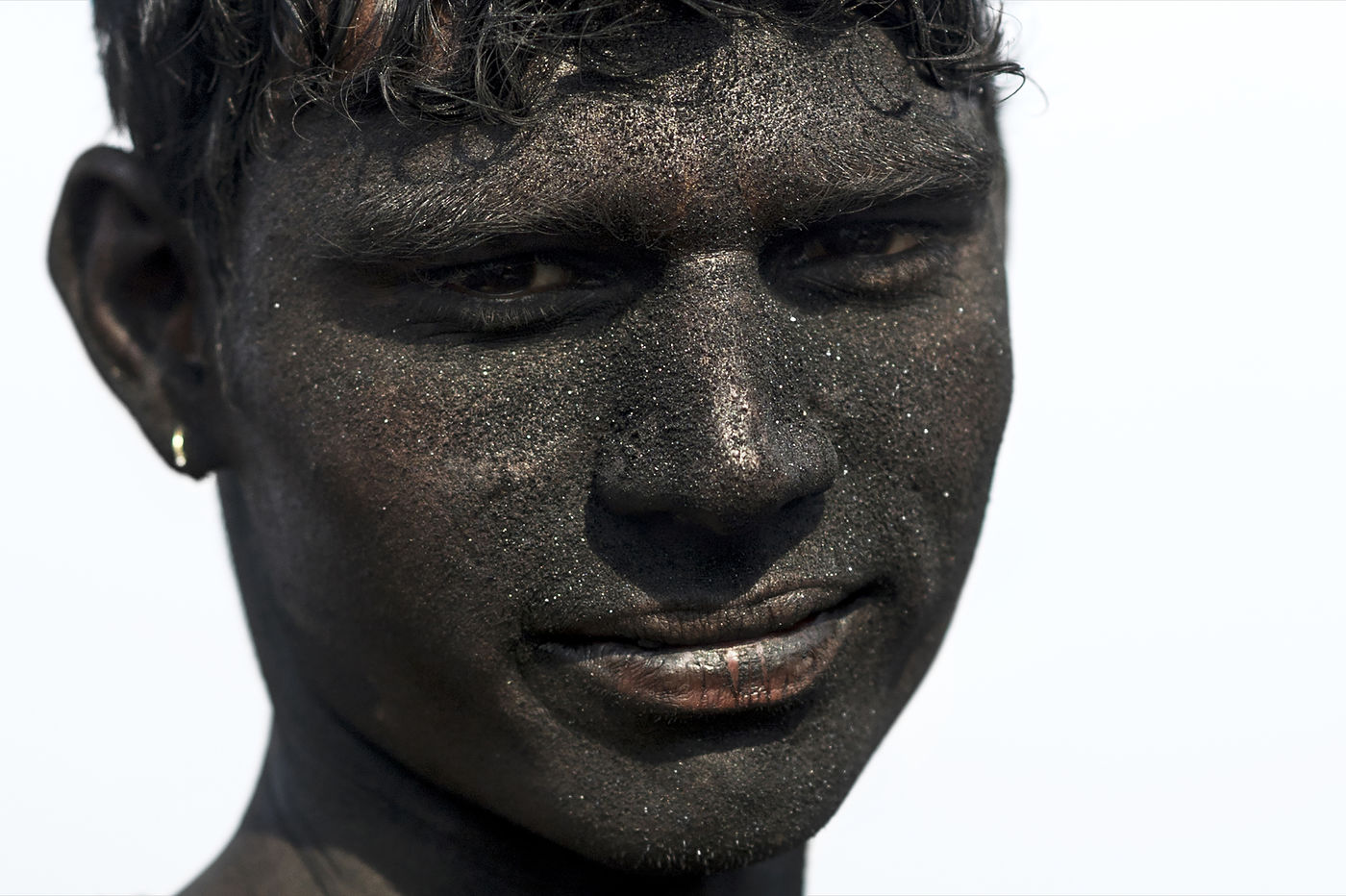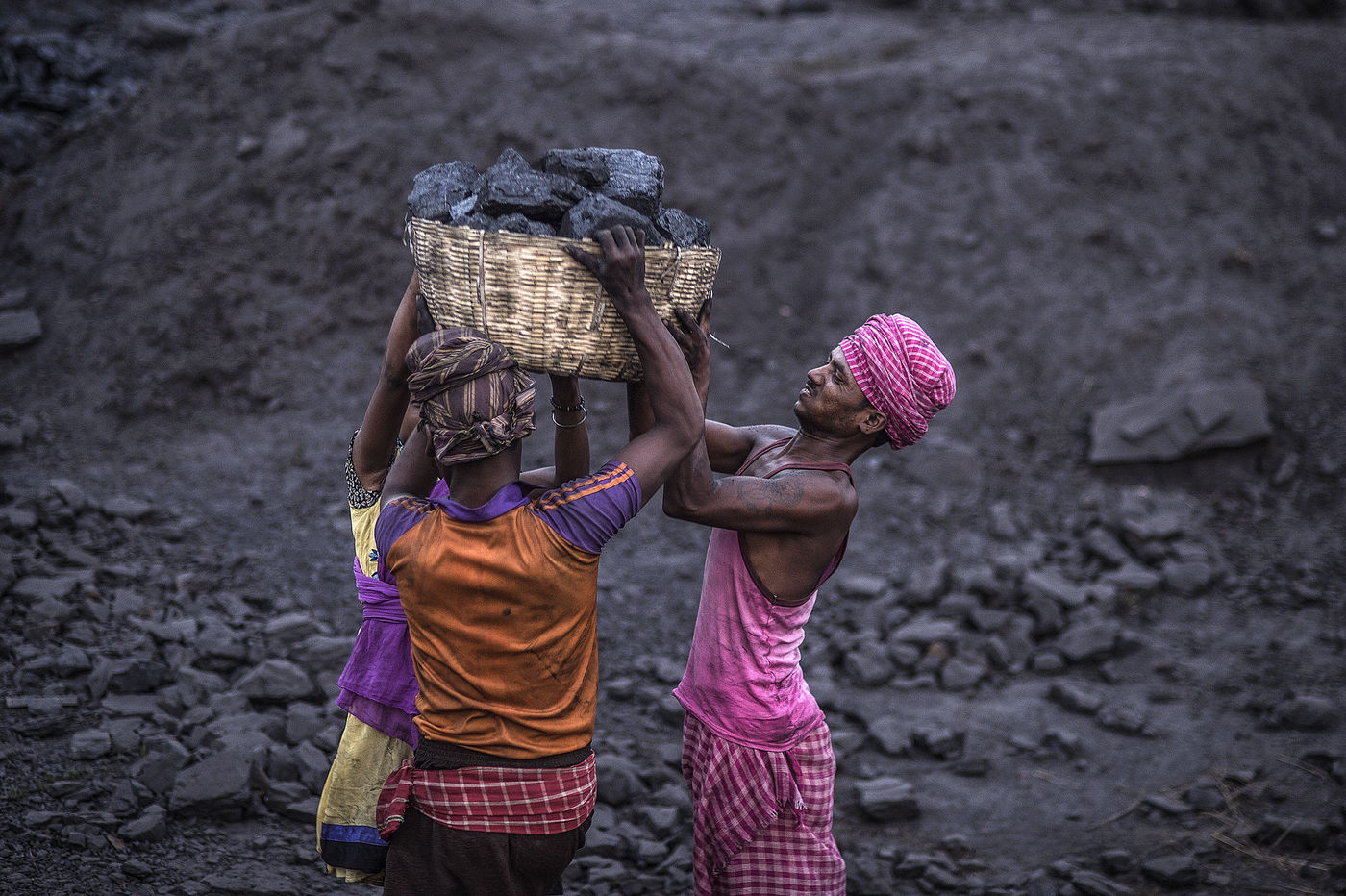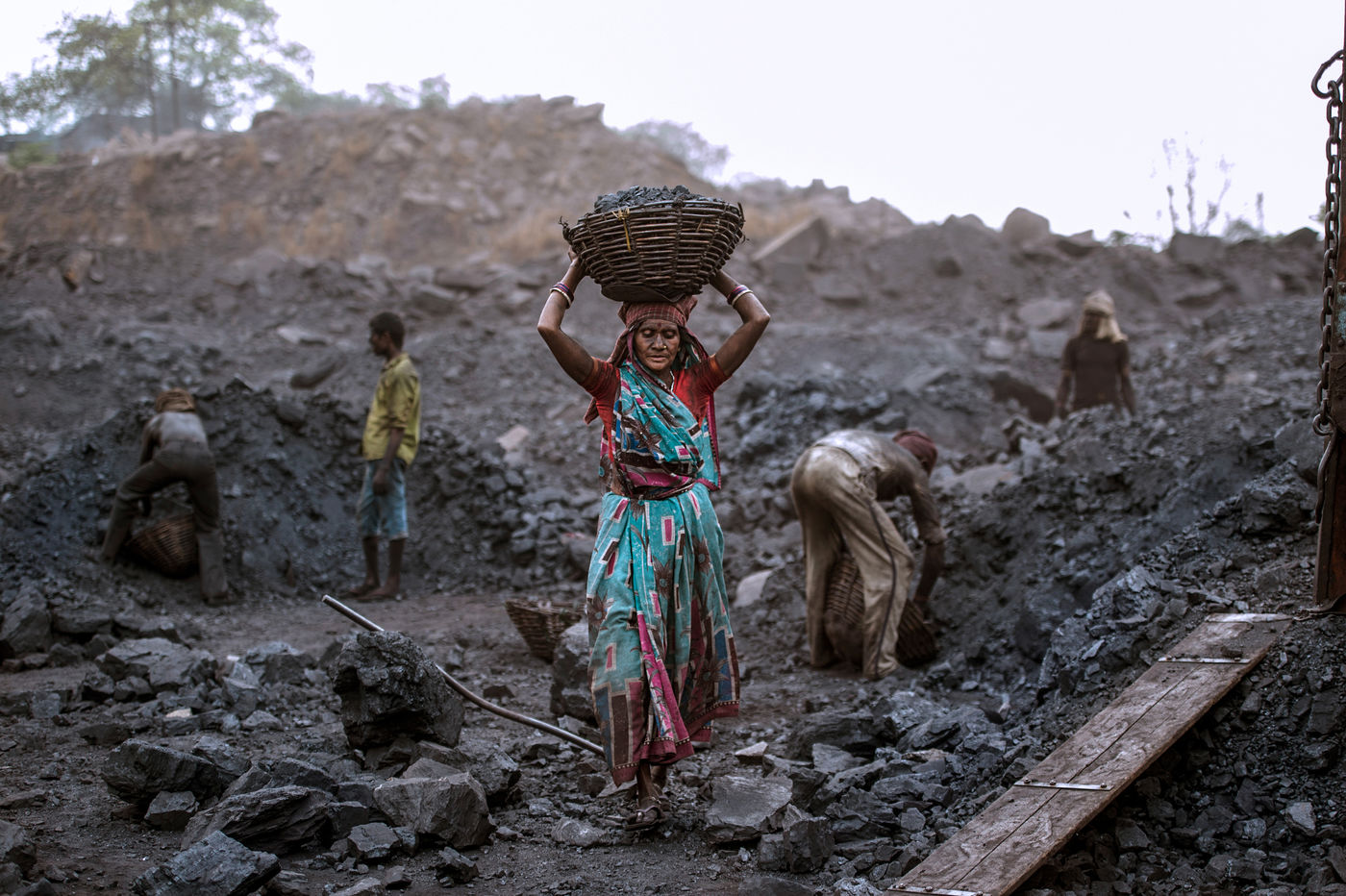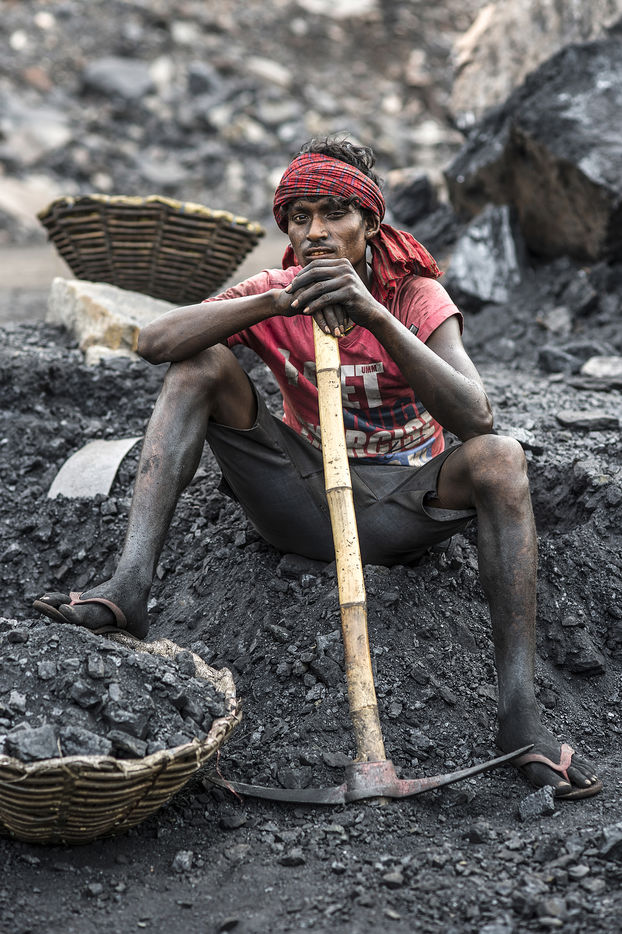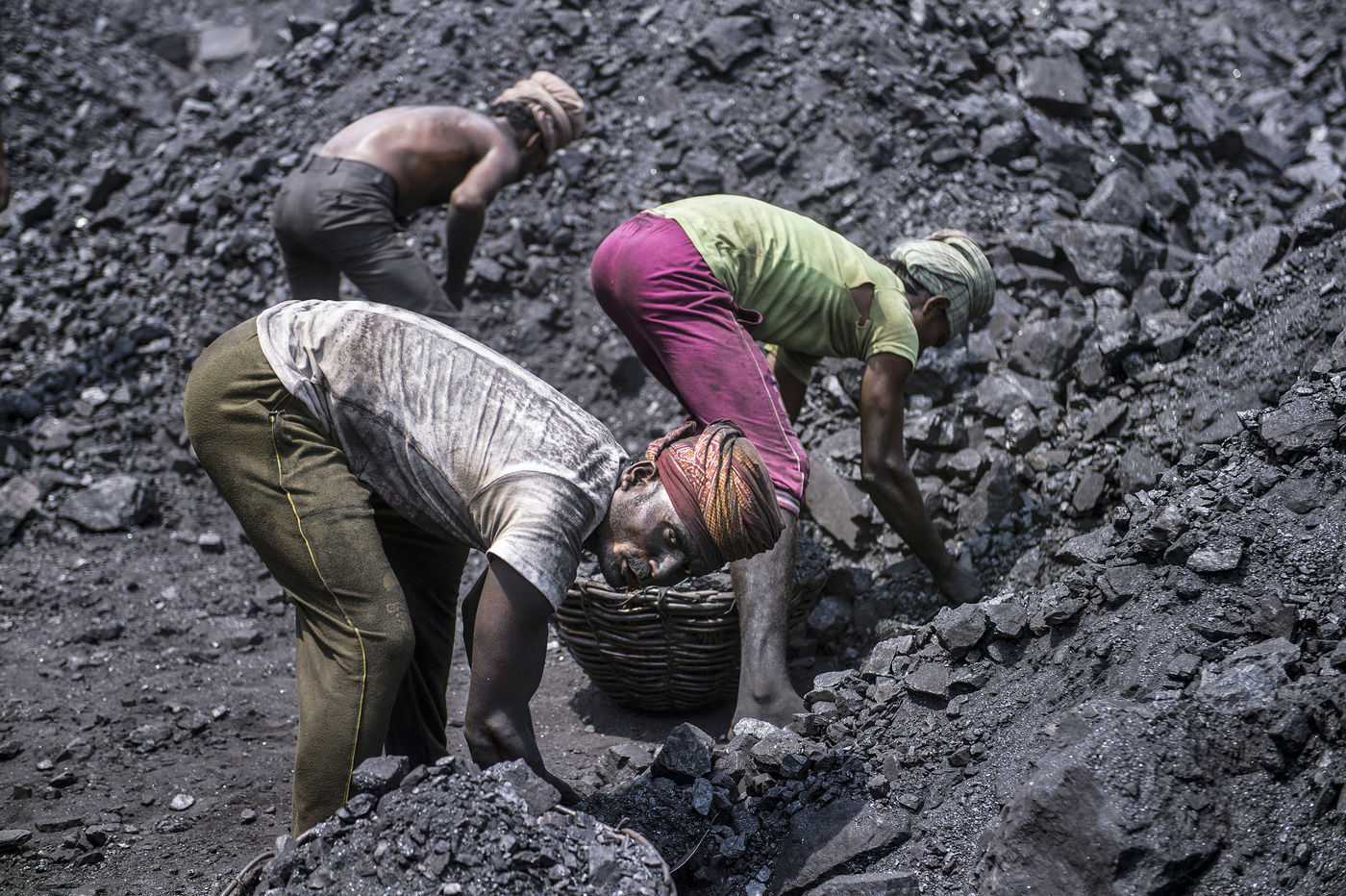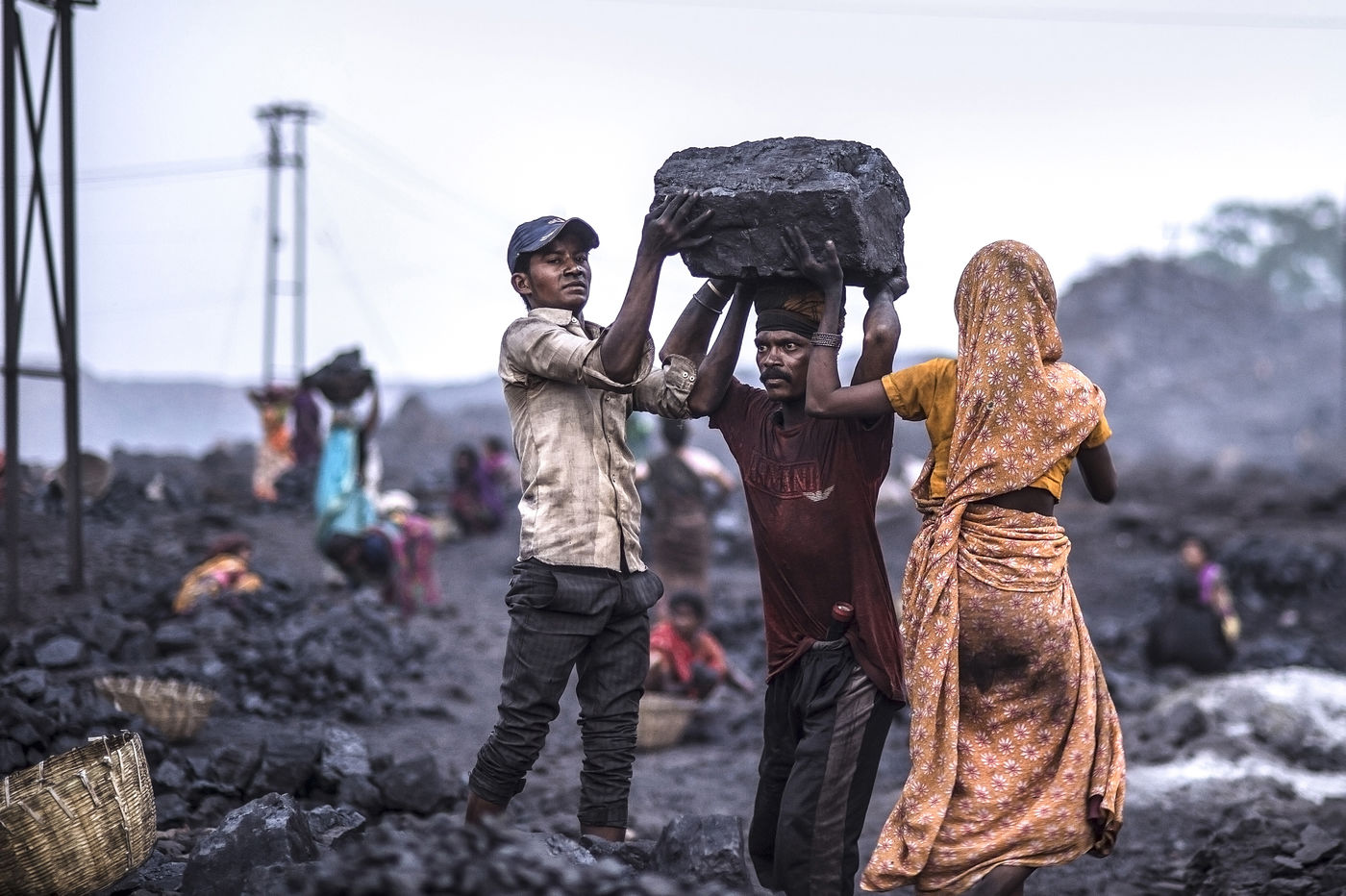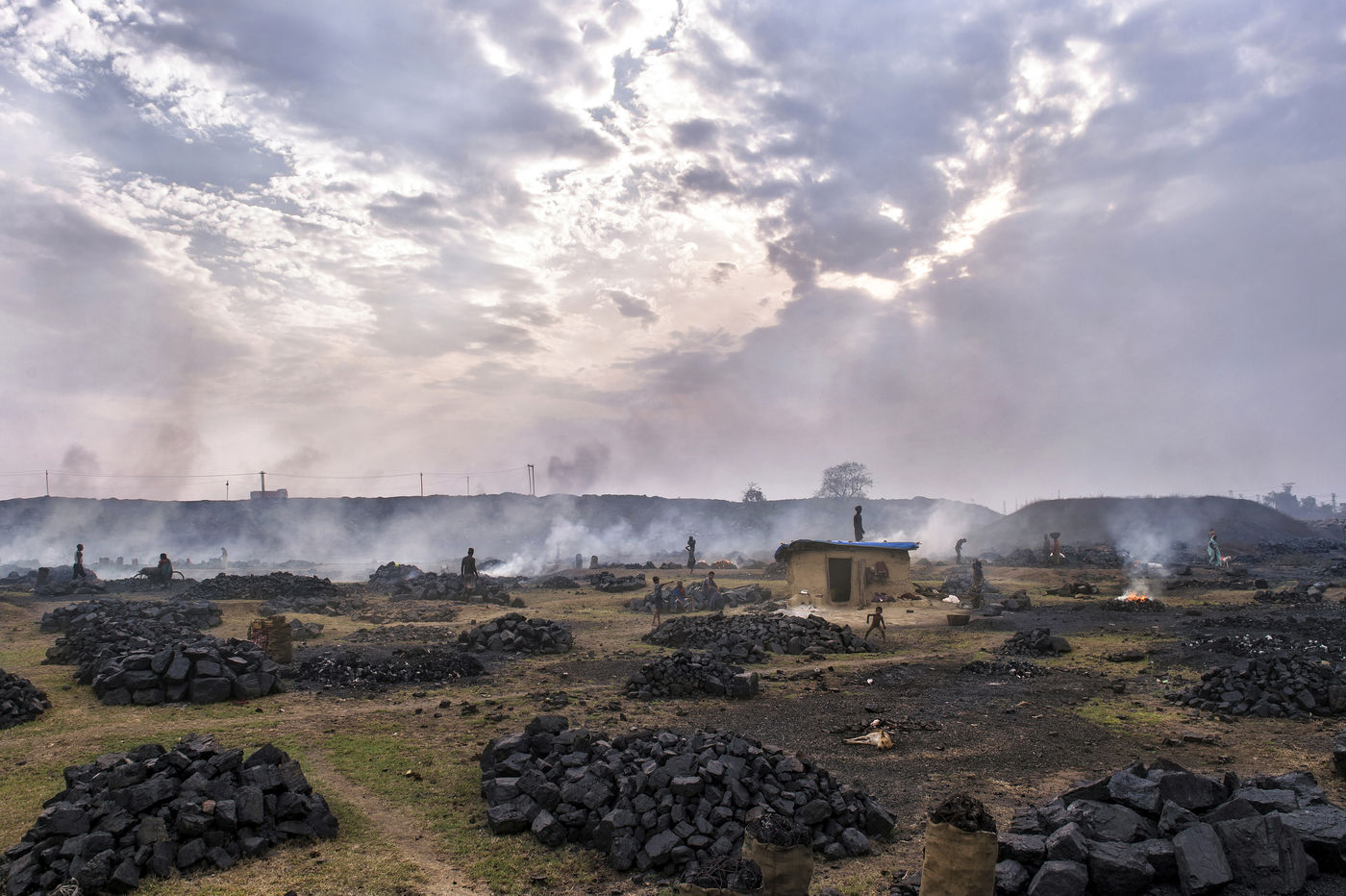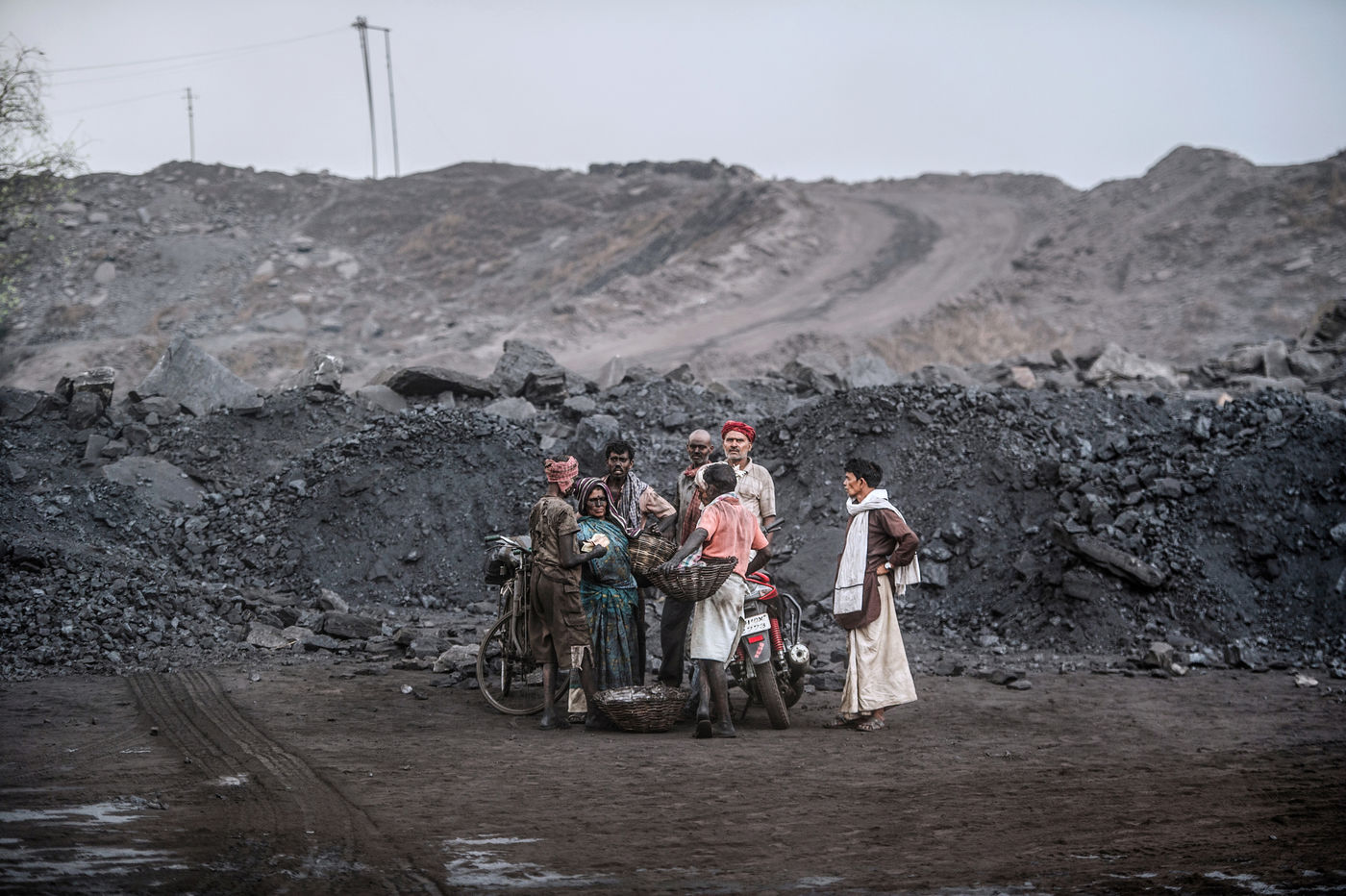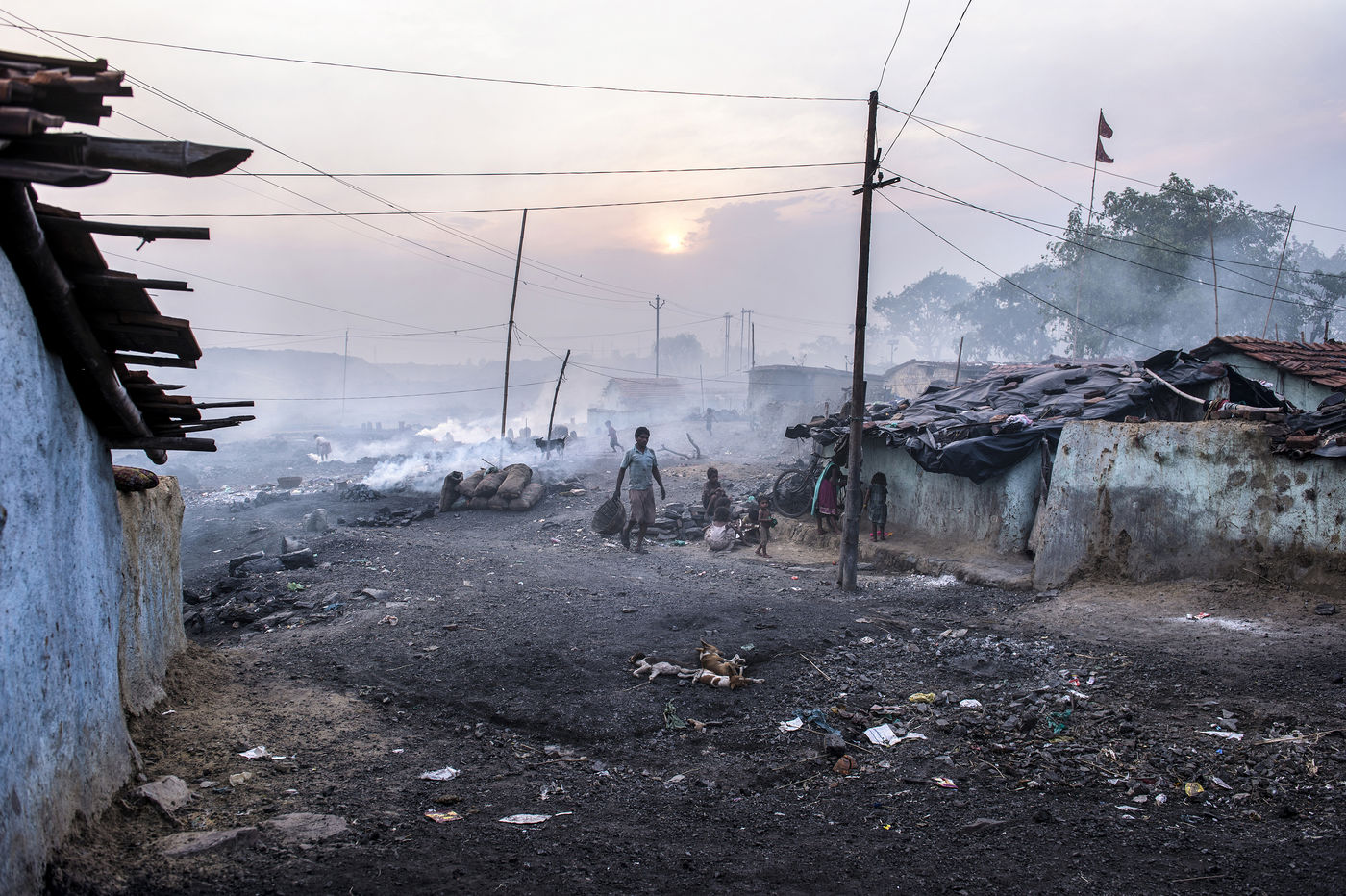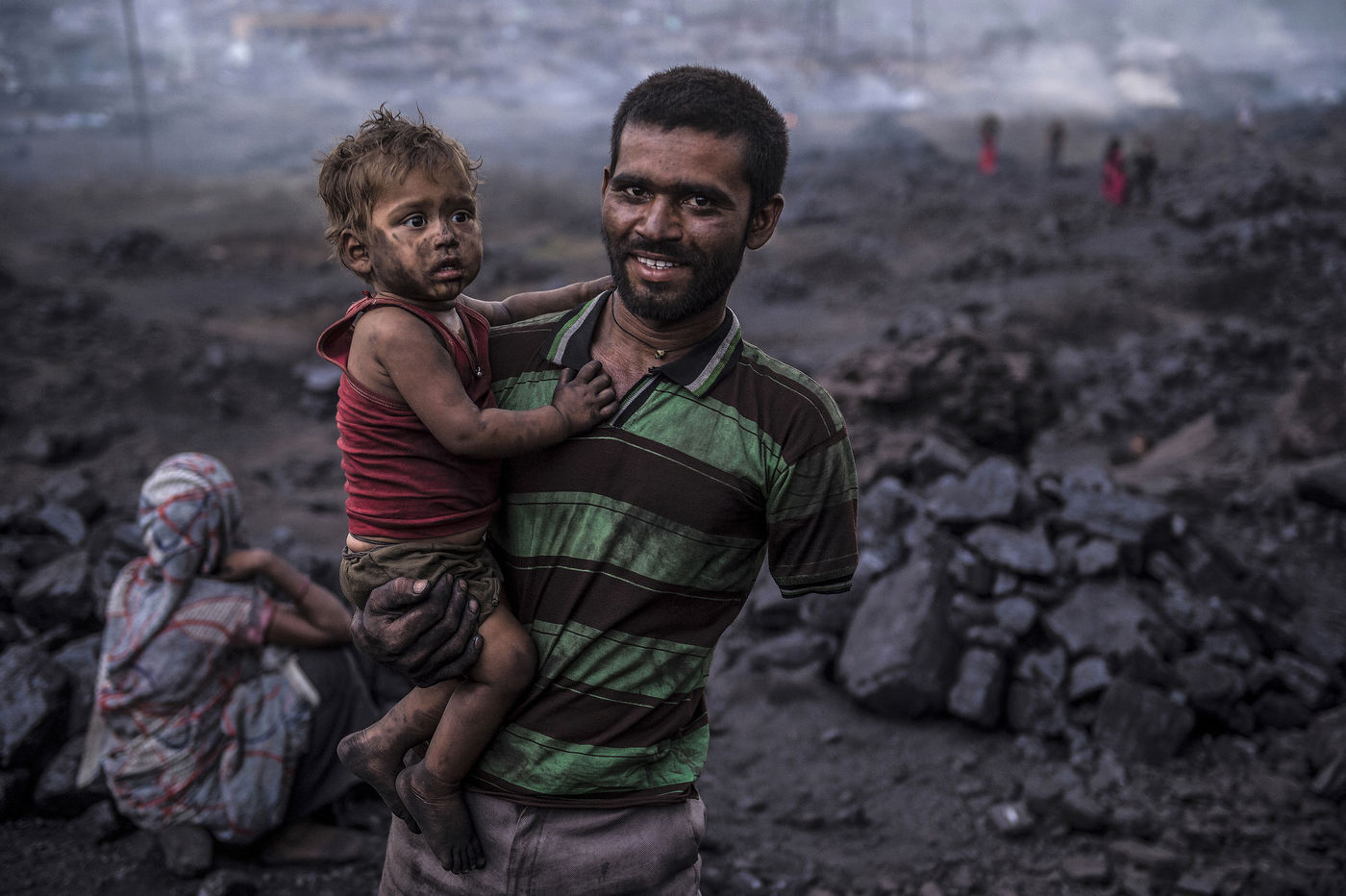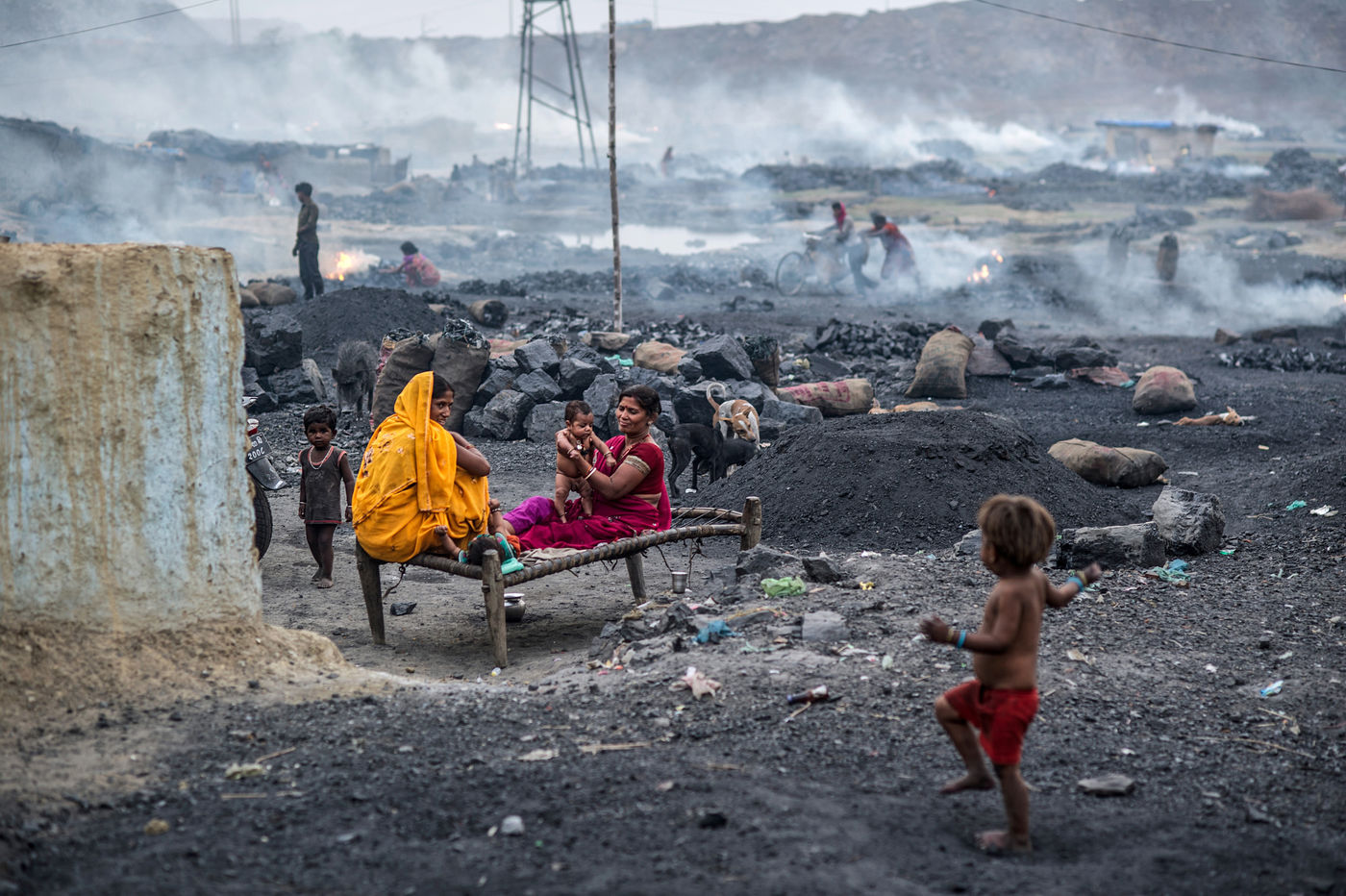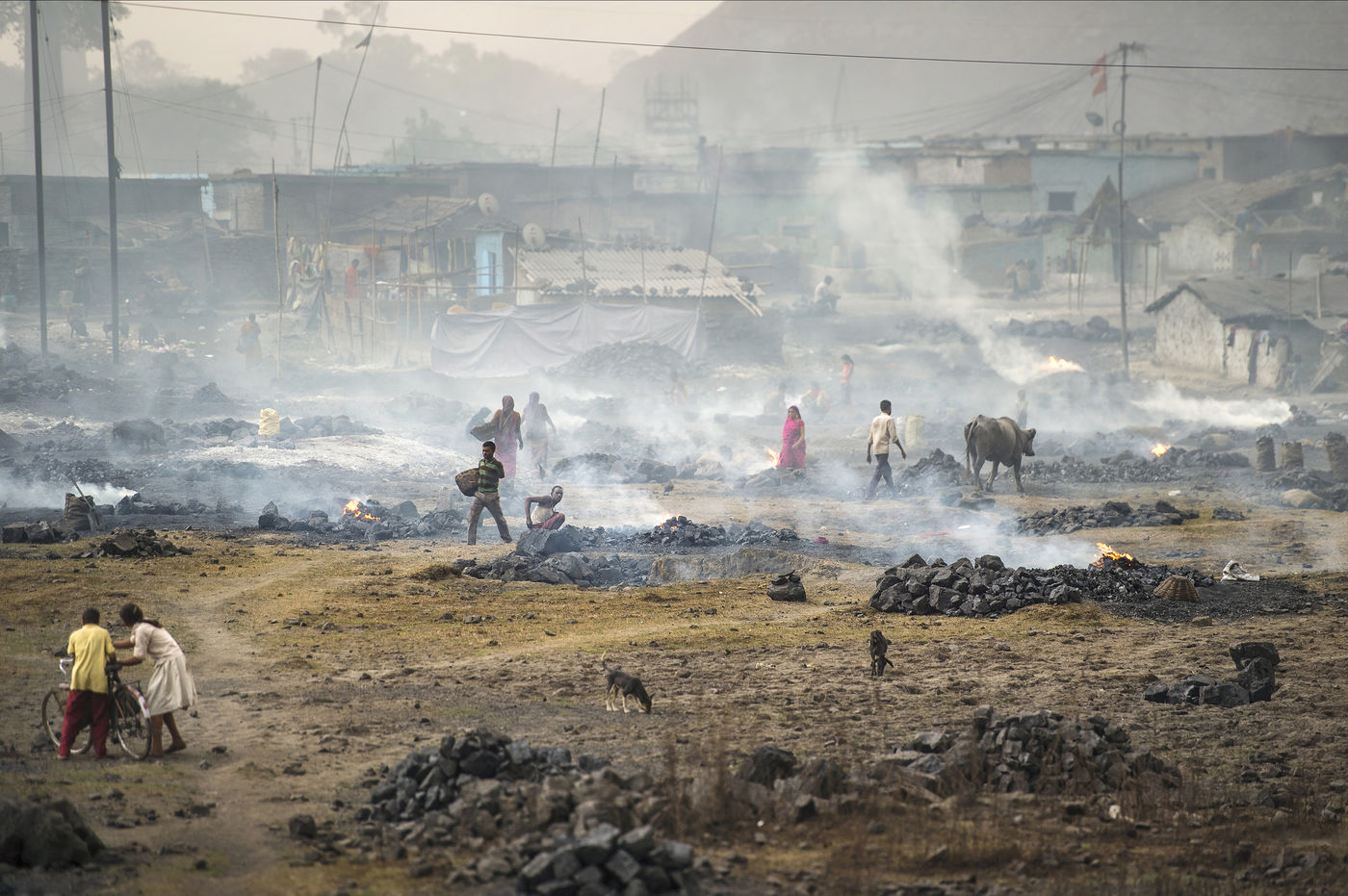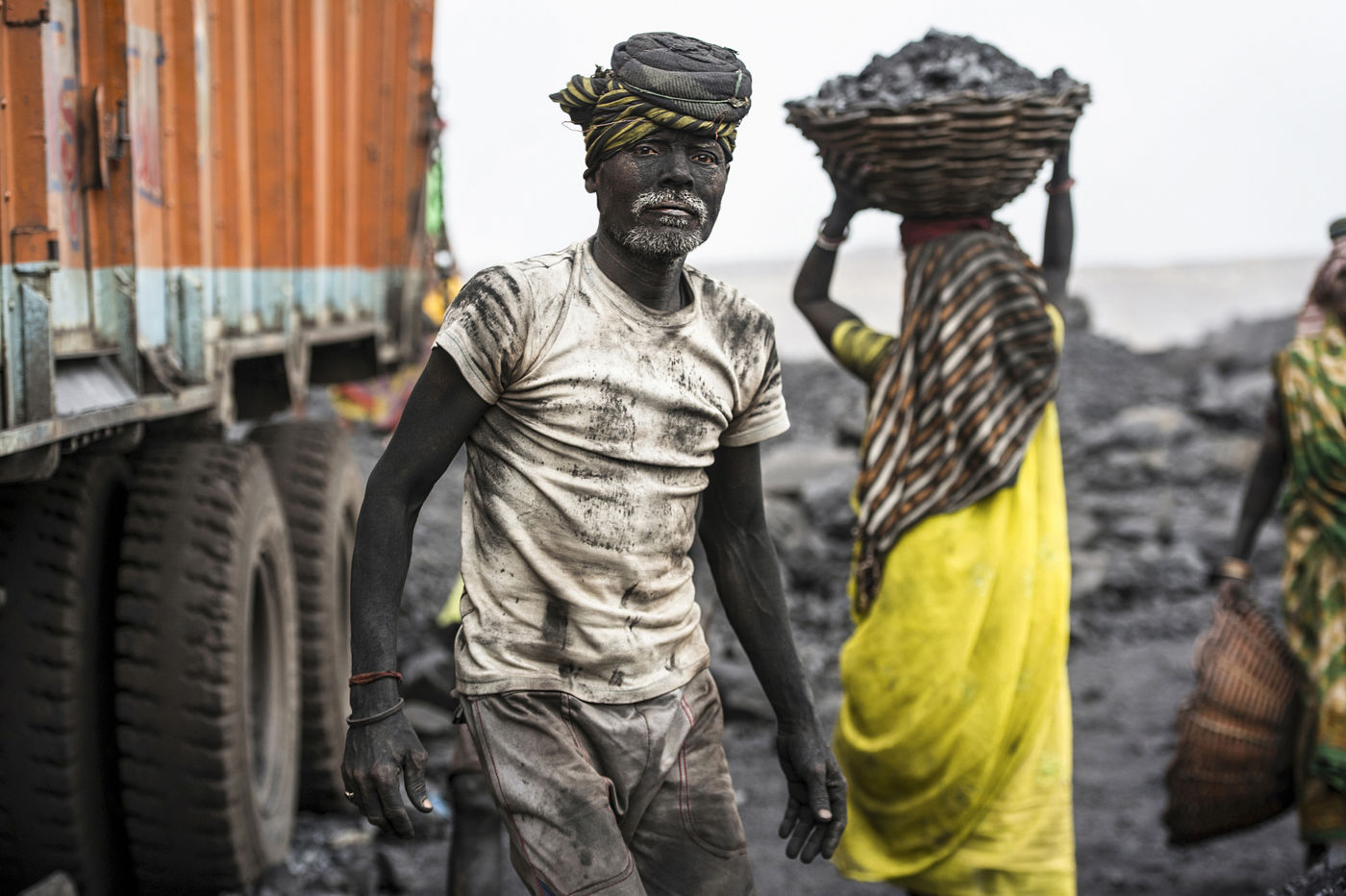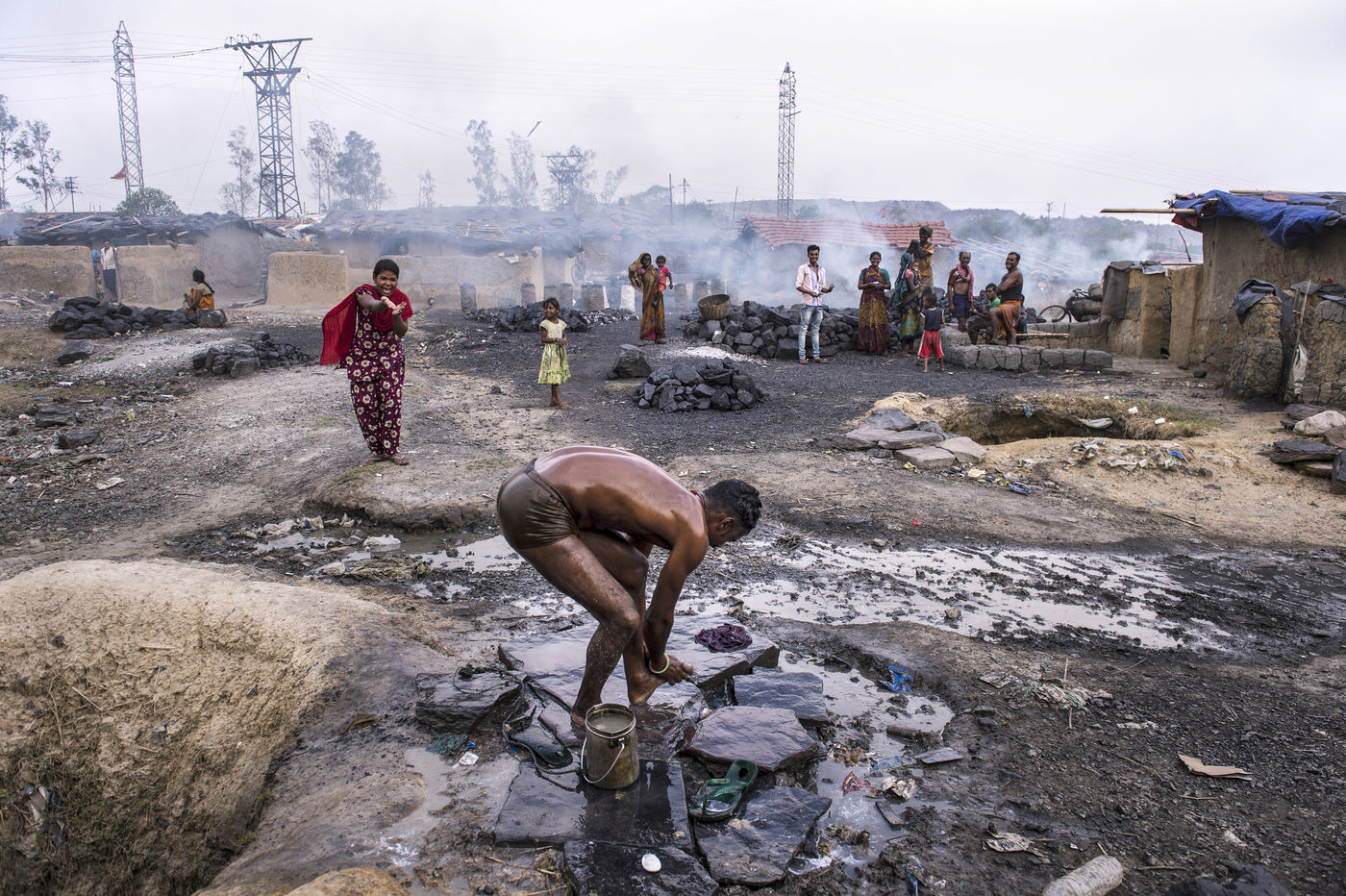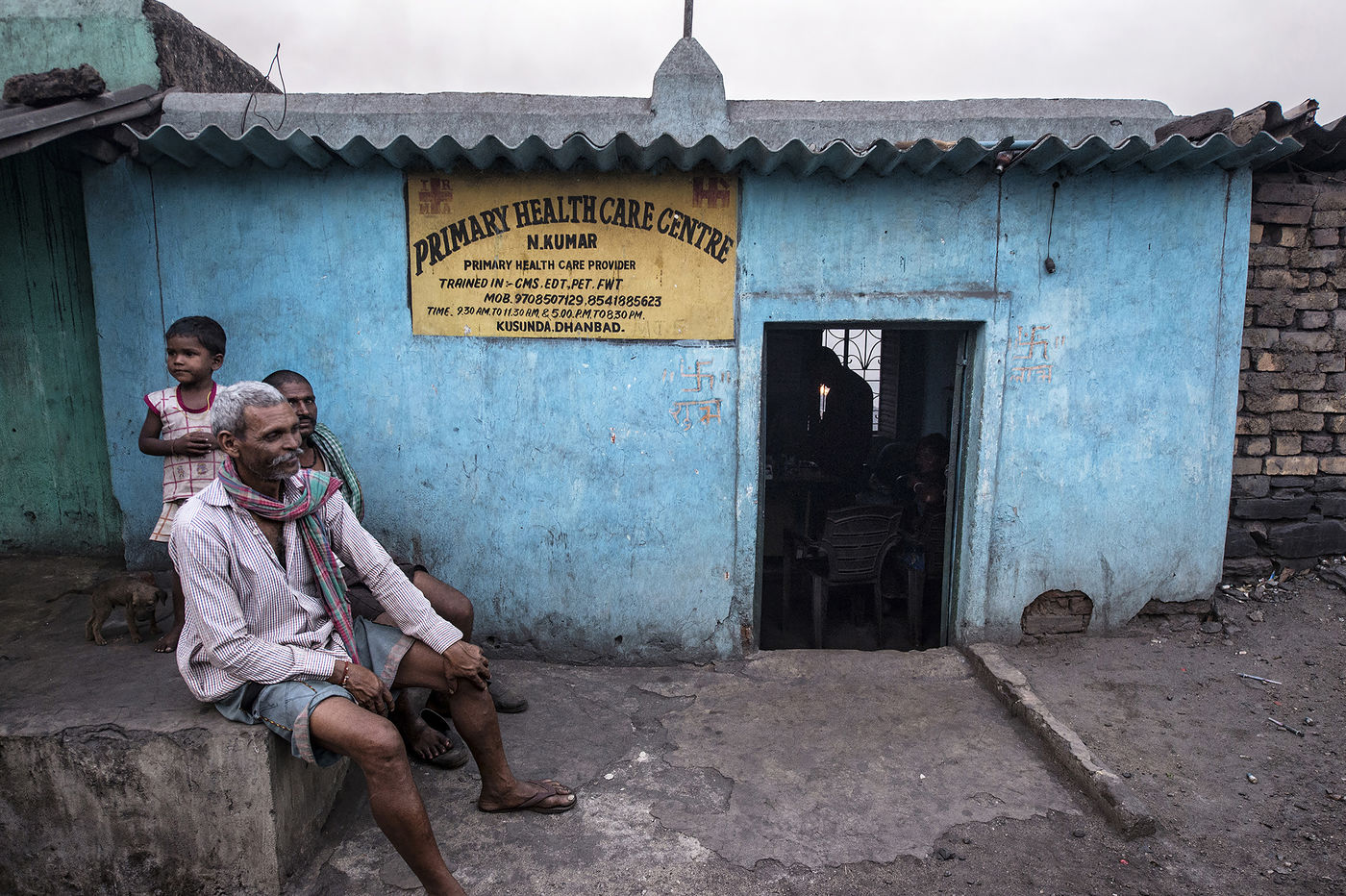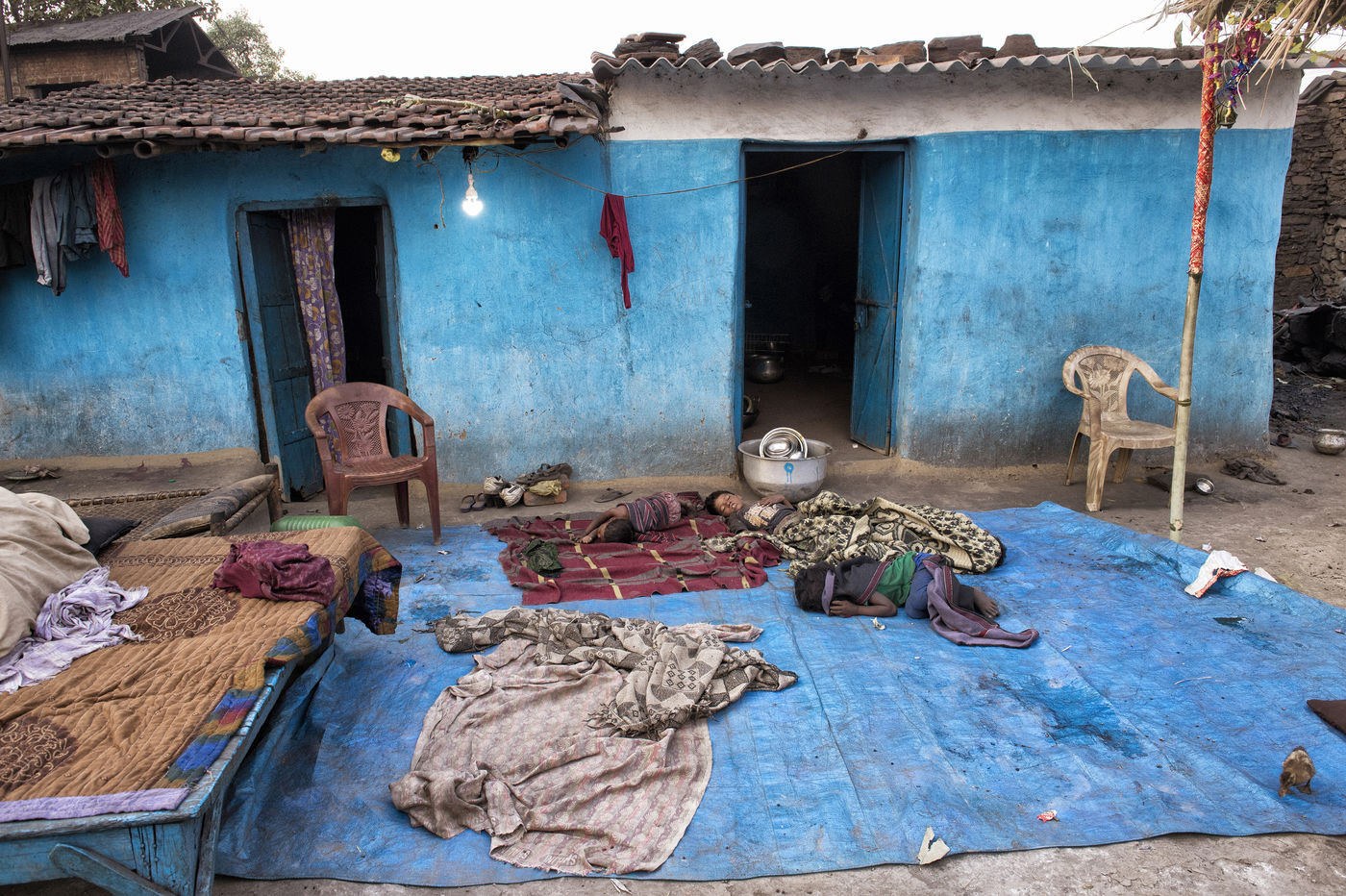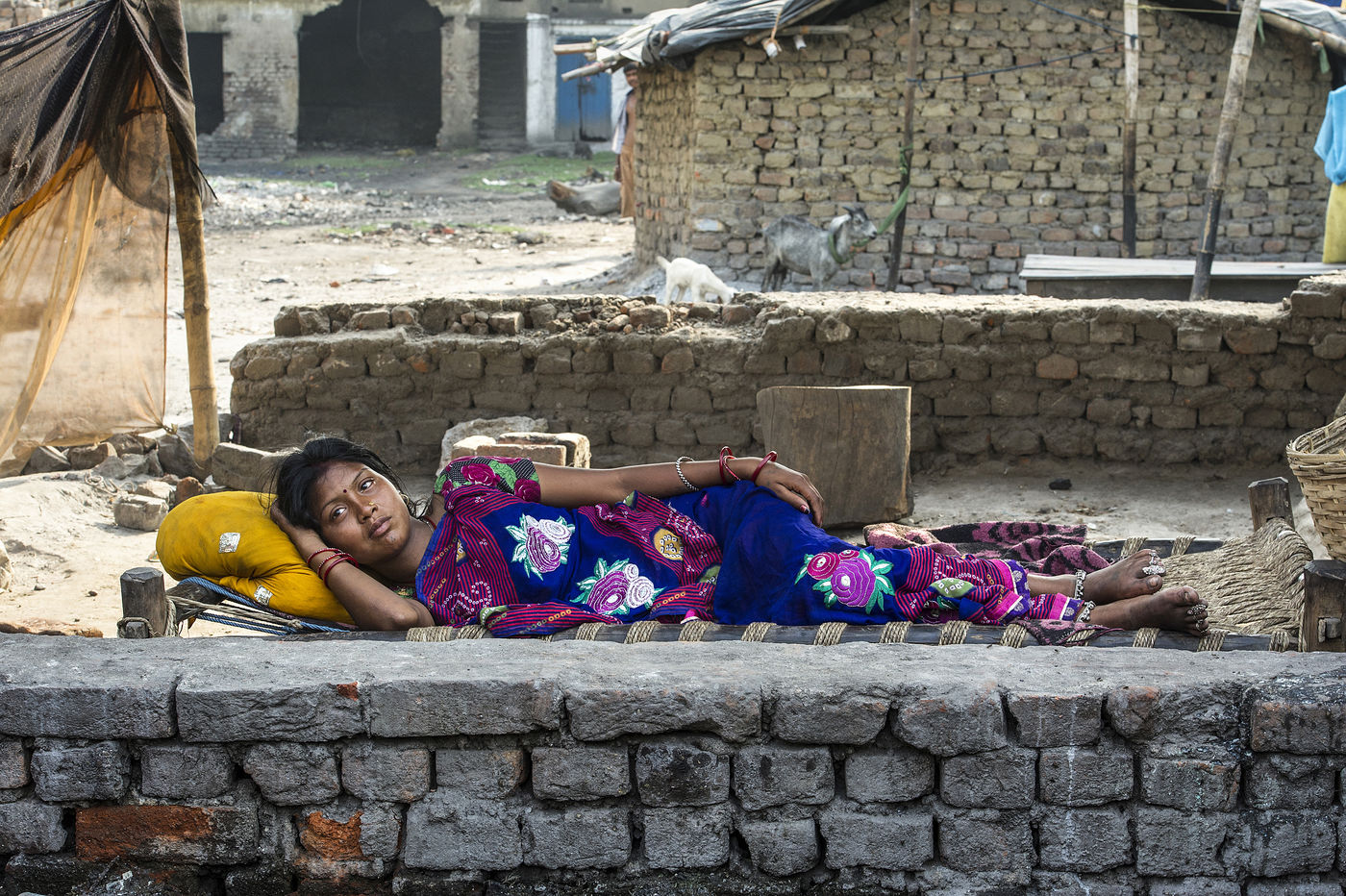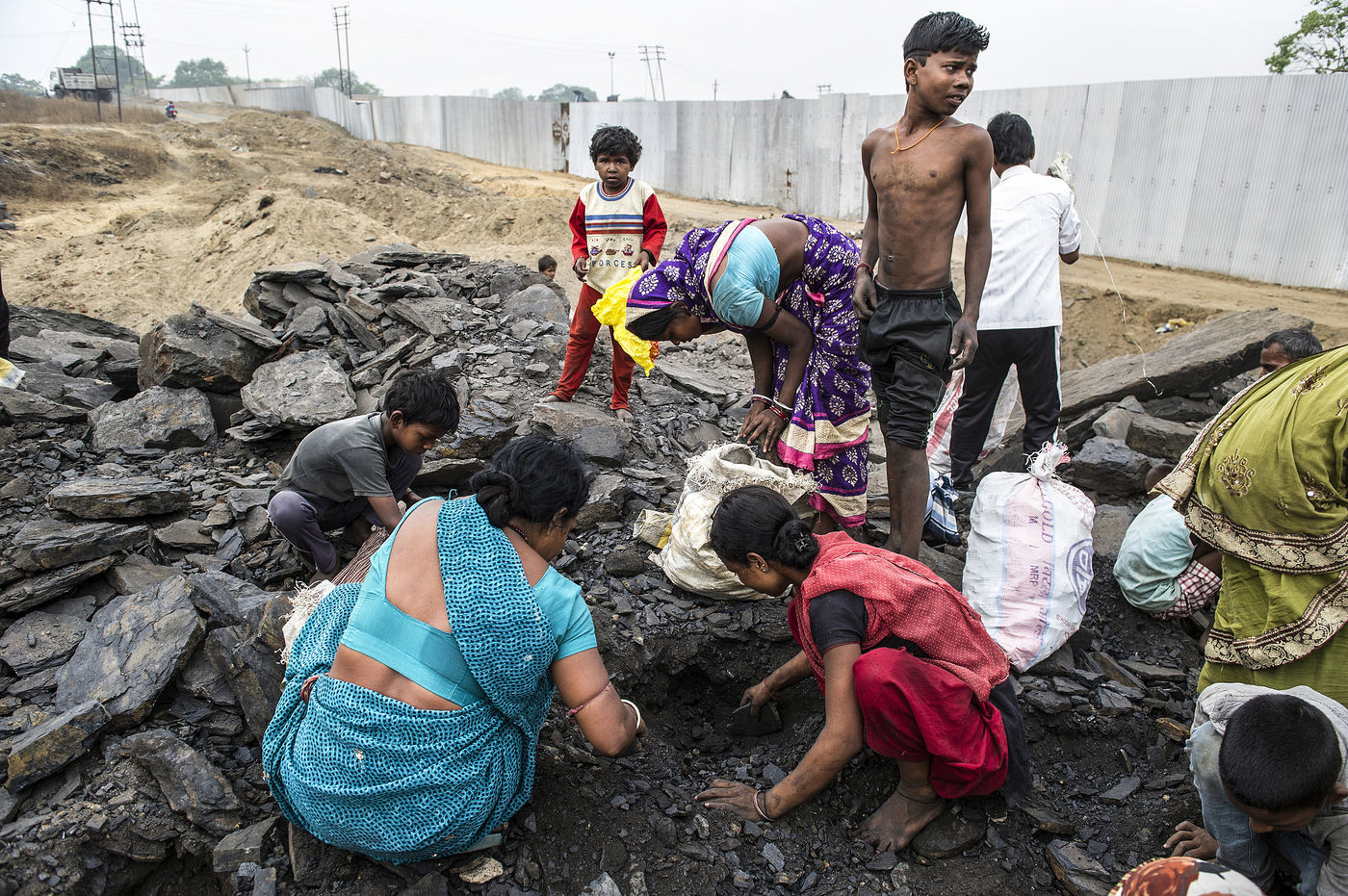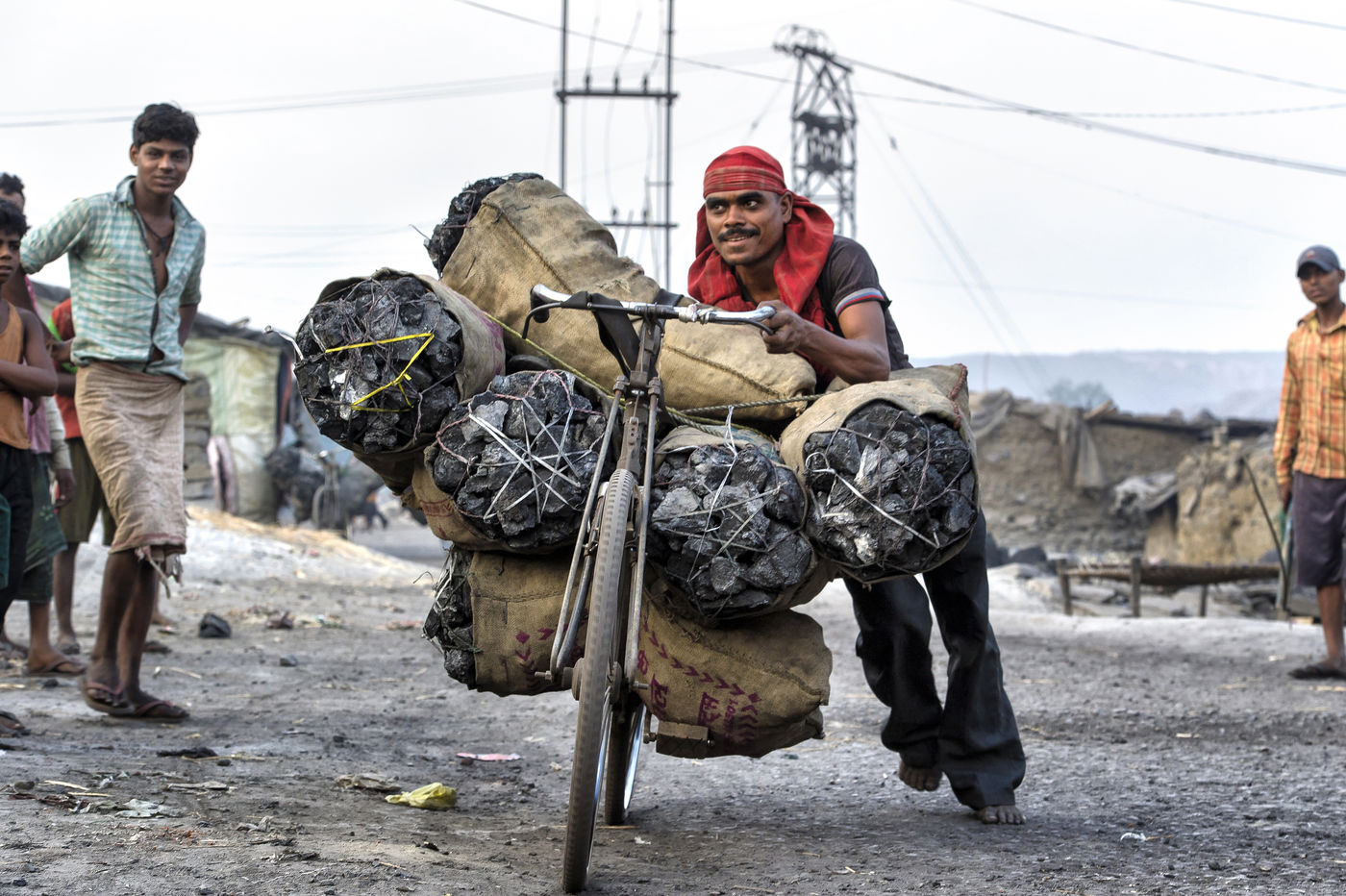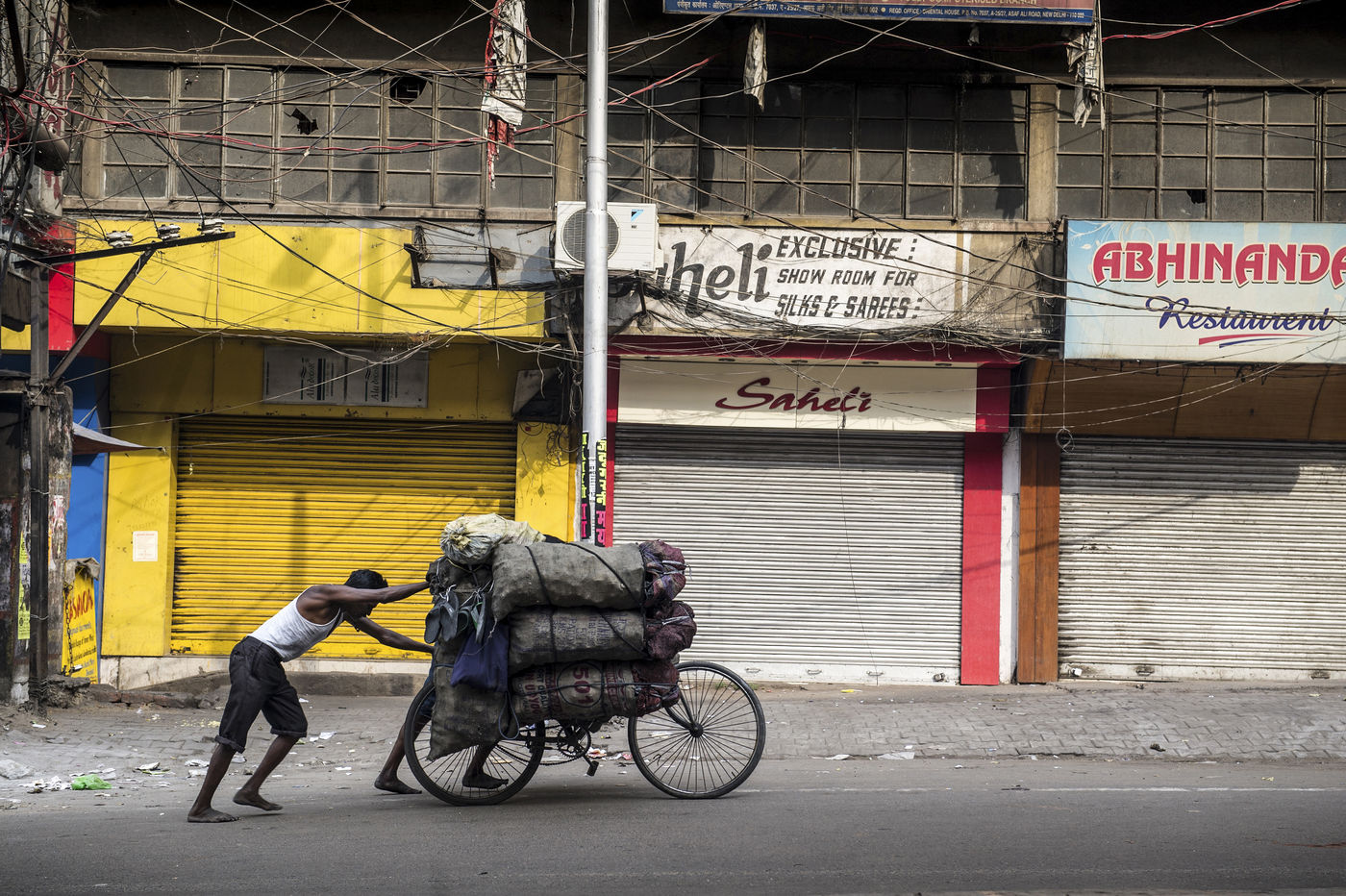BLACK HELL
Dans l'Etat du Jharkhand, au nord-est de l'Inde, la vallée de Damodar est un enfer sur terre. Les mines de charbon à ciel ouvert y ont remplacé la forêt. Elles fonctionnent sans interruption depuis plus d'un siècle. L'extraction du « minerai noir », a détruit la faune, la flore et bouleversé la topographie. La plupart des arbres ne sont plus que des souches sèches et la pollution des nappes phréatiques empêche toute culture. Depuis plus de quatre-vingt ans, un immense feu souterrain brûle rejetant d'énormes quantités de dioxyde de carbone dans l'atmosphère. Tous les efforts pour l'éteindre ont été vains.
Dans l'hostilité suffocante de cet environnement une population misérable sacrifiée au développement économique de l'Inde, travaille et survit malgré les nombreuses maladies provoquées par l'atmosphère toxique. Les feux de charbon crachent d'énormes quantités de dioxyde de carbone dans l'atmosphère. Les personnes qui vivent dans la fumée et les vapeurs toxiques qui s'échappent constamment hors de terre ont une espérance de vie considérablement diminuée. Les plus chanceux sont employés par les compagnies minières. Pour un dollar par jour, des femmes et des hommes cassent le charbon qu'ils transportent dans des paniers d'osier à même leur tête pour charger les camions. Mais les plus nombreux, par milliers, avant l'aube, ramassent illégalement le charbon pour le vendre au marché noir.
BLACK HELL
In the northeastern Indian state of Jharkhand, the Damodar Valley is a hell on earth. Open-pit coal mines have replaced the forest. These mines have been active without interruption for over a century. The extraction of the "black diamond", destroyed the fauna, the flora, and upset the topography. Most trees are only dry stumps and groundwater pollution prevents any cultivation. For over eighty years, a huge underground fire has been burning, releasing huge amounts of carbon dioxide into the atmosphere. All efforts to extinguish it have been in vain.
In the suffocating hostility of this environment a miserable people sacrificed to the economic development of India, works and survives despite the many diseases caused by the toxic atmosphere. Coal fires spit out huge amounts of carbon dioxide into the atmosphere. People who live in smoke and toxic fumes that constantly escape from the ground have a considerably shorter life expectancy. The luckiest are employed by mining companies. For a dollar a day, men and women break the coal that they carry in wicker baskets on their head to load the trucks. But the majority of them, by the thousands, before dawn, collect illegally the coal to sell it on the black market.
